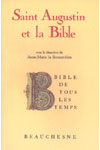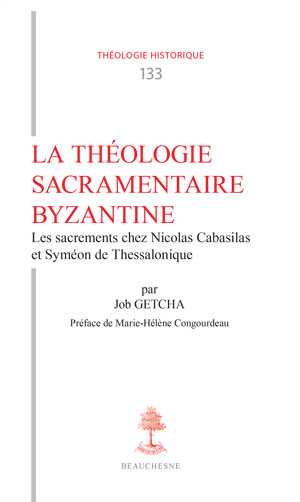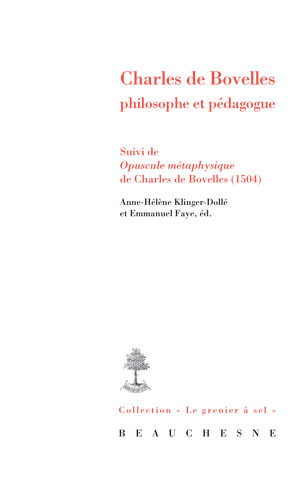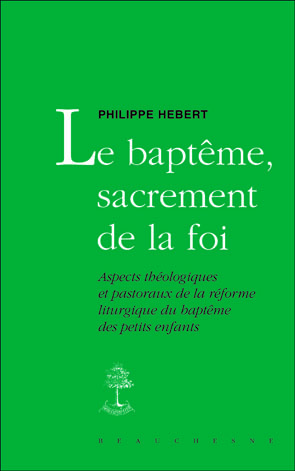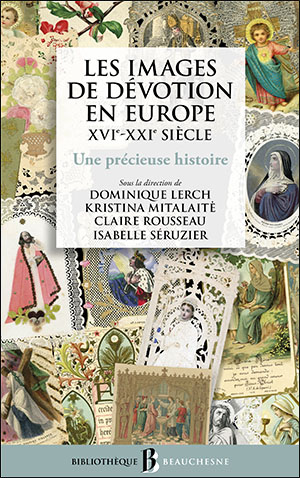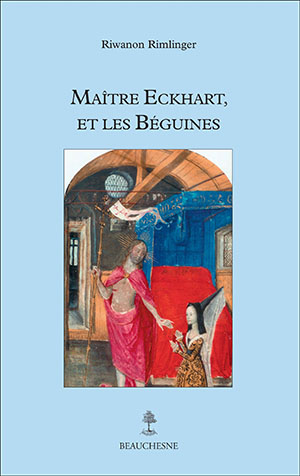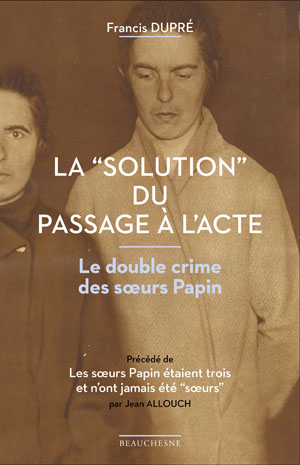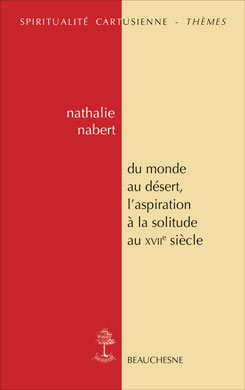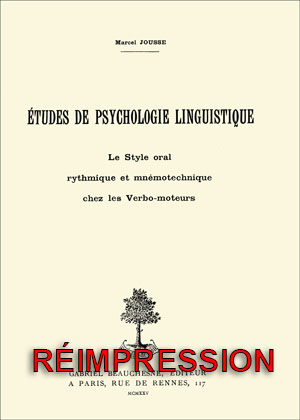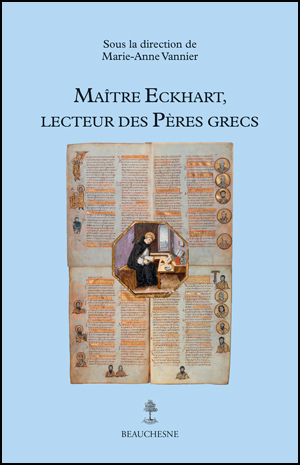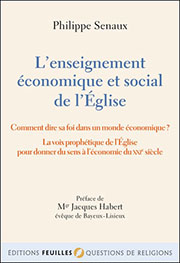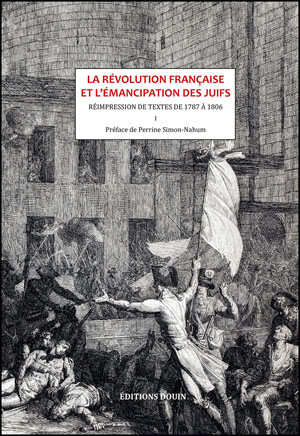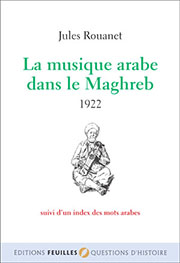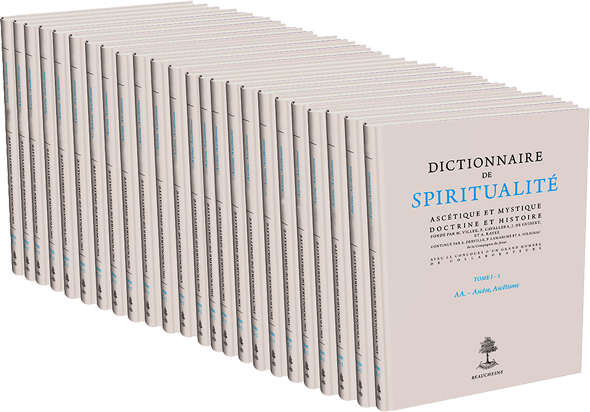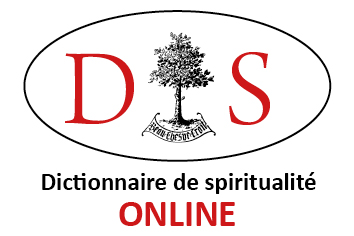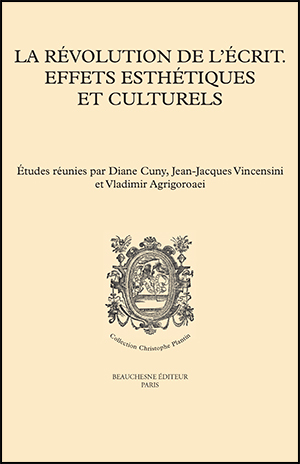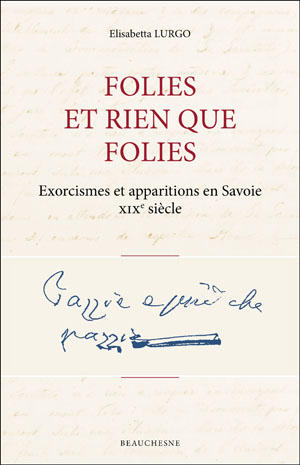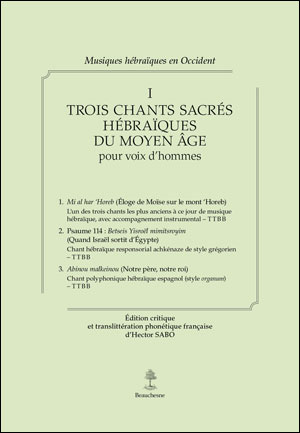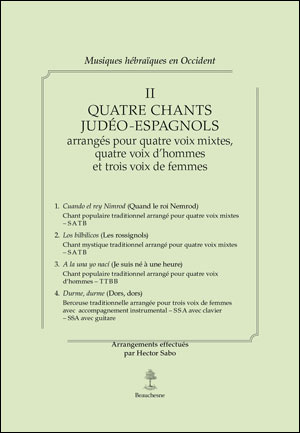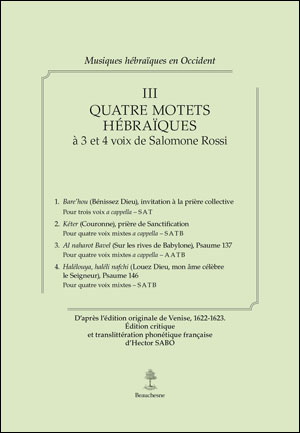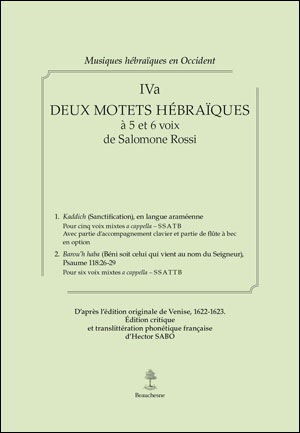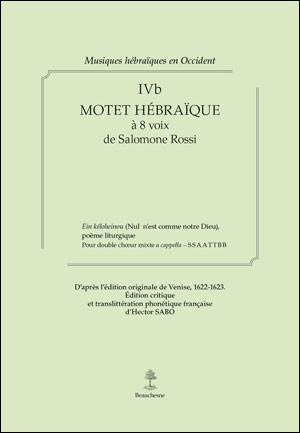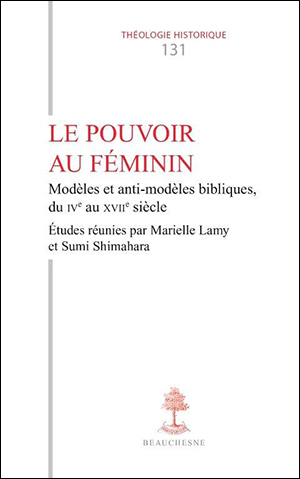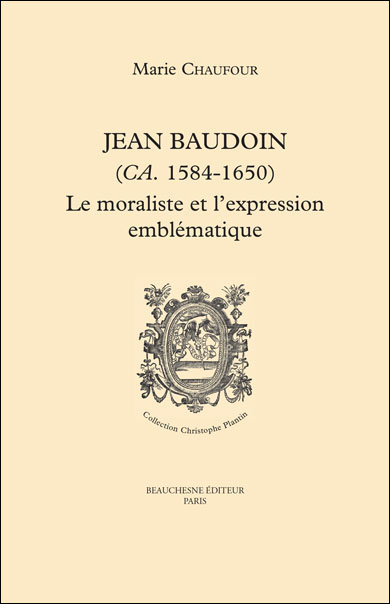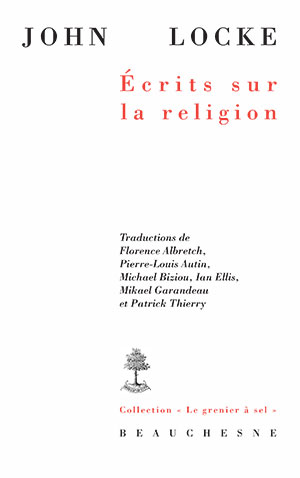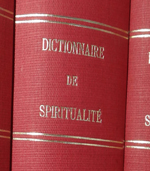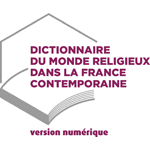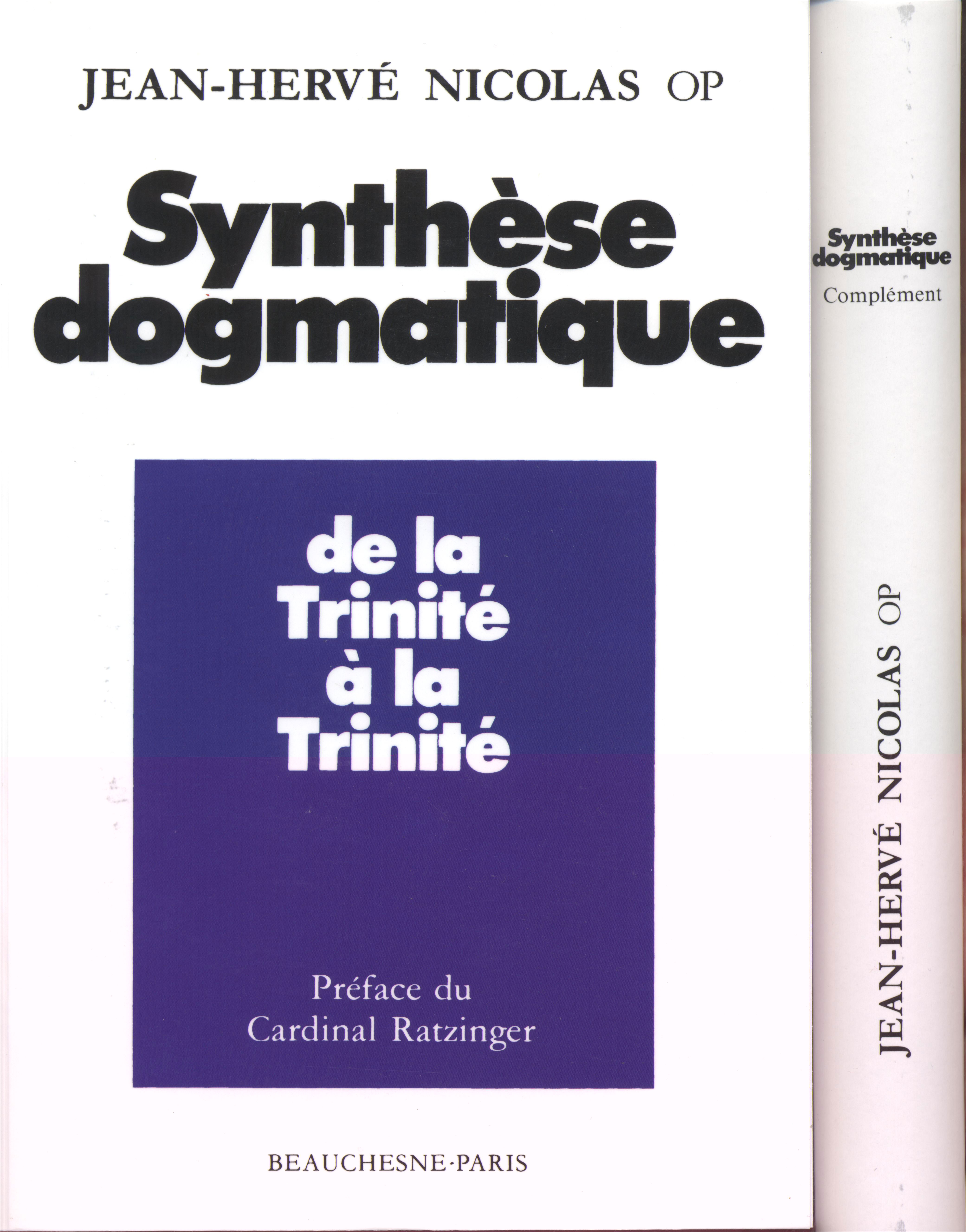48.00 €
BIBLE DE TOUS LES TEMPS N°3- SAINT AUGUSTIN ET LA BIBLE
Date d'ajout : mardi 10 octobre 2017
par Gérald BONNER
CRISTIANESIMO NELLA STORIA 10, 1989
Among those scholars who are currently seeking to interpret the thought of Augustine of Hippo to the contemporary world, no name is more distinguished than that of Anne-Marie la Bonnardière. By her seven volumes on Augustine's biblical citations, published under the general title of Biblia Augustiniana between 1960 and 1975 ; by her Recherches de chronologie augustinienne (1965) ; and by her numerous articles in learned journals, she has established herself as the leading authority on Augustine's use and understanding of the Bible. It was altogether fitting that she should he editor of the third volume of Bible de tous le temps, of which the grater part is of her own writing. Il is to her inspiration and enthusiasm that her distinguished collaborators pay tribute in a dedication which is as felicitous as it is patently sincere. There can be no question of the learning which underlies the present book, it is awe - inspiring, and reminds the reader afresh of the dominance of the French in the field of Augustinian studies.
It is not, however, an easy book to use. It is divided into eight unnumbered sections : L'initiation biblique d'Augtin ; Bible et liturgie ; Bible et prière ; Le courier biblique d'Augutin ; Intelligence des Ecritures et predication ; Bible et polémiques ; La Bible dans la Cité de Dieu ; La Bible, "miroir" de l'éthique chrétienne. Within these sections, generally following an unnumbered introductory essay (which may sometimes be of considerable length), are twenty-one numbered articles, unevenly distributed among the sections. These essays and articles are usually, though not invariably, concerned with specific topics, rather than with the general principles of Augustnés use of the Bible.
Such features raise questions about the object of the collection, and the readership to which it is addressed. It is certainly not intended for the beginner. Indeed, la Bonnardière, in an article discussing Augustine's use of Jeromés translation of the Bible - a discussion which is confined to the Old Testament - announces her intention of passing over in silence the arguments between Augustine and Jerome, including their famous disagreement over the debate between Peter and Paul on Judaizing (Gal. 2:14). « Nous n'insistons pas sur ces "querelles" très connues" (305). Yet clearly, Augustine's protest at a scriptural exegesis which assumed that the Apostles might deliberately act the lie is of the greatest importance for understanding his approach to biblical interpretation. Again, one might have expected some discussion of the versions of Scripture used by Augustine, but this is mentioned only in passing, and the question of his knowledge of Greek ignored. The De Doctrina Christiana, a fundamental document for any study of Augustinian exegesis, is only discussed more than half way through the book in an essay by Madeleine Moreau (253-285) which, although admirable in itself, is concerned with Augustine's utilisation of pagan learning for Biblical study rather than with the theory of signs, which provides the philosophical foundation for his exegesis. (In this context, the reviewer does not recollect any reference to Augustine's exposition of the fourfold sense of the Old Testament of De Utilitate Credendi 3,5). In short, almost all the various pieces are addressed to the specialist, and the unenlightened reader might be excused for regarding the collection as representing the occasional papers of Anne-Marie la Bonnardière supplemented by a number of essays by some of the leading Augustinian scholars currently writing in French.
The explanation comes in the conclusion of the book (439-442). Recognising that the range and richness of Augustine's preaching and writing on the Bible preclude any hope of producing an exhaustive study, la Bonnardière and her colleagues have chosen to concentrate on certain areas of his thought which are commonly neglected, and to present them, as far as possible, in Augustine's own words, including direct translations of Augustine's sermons 183 and 227 and of De Genesi ad Litteram 1,18,37-21,41 (where the reference, p. 322 note l, omits the number of the book). The inspiration of this procedure derives from H.-I. Marrou, who wrote : « …Notre rôle, à nous les augustiniens d'aujourd'hui, est bien de défendre Augustin contre les images stéréotypées ou prétendument nouvelles, mais fausses, qui en circulent » (441).
This information (which might, with advantage, have been placed at the beginning) makes clear the function of the book in the minds of the contributors. It is not a systematic exposition of the principles and development of Augustine's understanding of the Bible, on the lines, for example, of A.D.R. Polman's The Word of God according to St Augustine, but a collection of apperçus of Augustine's thought, united by a common conviction of the essentially pastoral character of his exegesis. Augustine, like other Fathers of the Church, was first and foremost a preacher: « …sa Bible est… la Bible d'un Pasteur » (51), and his biblical knowledge is conditioned, not by the whole Bible, but in the first place by the Pauline Epistles, which played so large a part in his conversion, and secondly, by the lections of the liturgy at which he pre sided (57). Such an approach has of necessity severe limitations. One would have welcomed an extended discussion of Augustine's commentaries on Genesis, with their progression from an allegorical to a more literal interpretation of the text ; of the significance of the course of bible- study, undertaken after his ordination in 391, when he became embarassingly aware of the inadequacy of his knowledge ; of the dramatic effect upon him, when writing to Simplicianus of Milan in 396, of understanding the full implications of I Corinthians 4:7 ; and of his handling of Scripture in his debates with the Pelagians at the end of his life, with his notorious misapplication of Romans 5:12. Indeed, if one had to reduce criticism of the collection as a whole to a single item, it would be that it tends to emphasise the bright lights, rather than the shadows, of Augustine's theology - perhaps inevitably, if one concentrates, as this collection tends to do, on Augustine's preaching, in which he deliberately avoided emphasising the more pessimistic side of his doctrine of Predestination and the Fall, although even here he could be outspoken enough in his anxiety to urge his flock to bring their children to be baptised, as appears, for example, in his Homilies on John 4,7. Perhaps the most striking omission from the present volume is a thorough discussion of Augustine's appeal to Scripture in his debates with the Pelagians.
This being said, the collection remains an impressive monument to the achievements of current Augustinian biblical scholarship. La Bonnardière begins the book (1) with two essays on Augustine's biblical initiation, and on Augustine as a minister of God's word. Elisabeth Paoli follows (2) with a study of the lectores in Augustine's Africa - a useful piece of literary archaeology. (3) P. -P. Verbraken provides a critical text of the Epiphany sermon 204, which is translated by Madeleine Moreau and complemented by a discussion by la Bonnardière of the Epiphany lections of Augustine 's day. (4) There is a fine discussion by Michel Albaric of Sermon 227, "perhaps the richest of Augustine's eucharistic sermons". (5) Joseph Wolinski discusses Augustine's exegesis of Ps. 18:6: in sole posuit tabernaculum suum, and la Bonnardière (6) his treatment of the episode of the Syrophoenician woman (Matt. 15:21-28), who is seen as an image of the Church, and (7) of Christ's calming of the storm. (8) Suzanne Poque examines Augustine's references to the Psalms in the Confessions. (9) Luc Verheijen investigates the meaning of "hymns" in the injunction in Augustine's Rule : « When you pray to God in psalms and hymns, the words you speak should be alive in your hearts » in the light of the language of the Enarrationes in Psalmos. (10) La Bonnardière analyses Augustine's treatment of Romans 8:26 as expressed in his letter to Proba (ep. 130). (11) Dany Dideberg describes Augustine's understanding of the figure of John, the Beloved Disciple. There follows (12) la Bonnardière, on the correspondence between Evodius and Augustine (epp. 163 and 164) on Christ's descent into hell ; and Jean-Paul Bouhot (13), on the exchange between Augustine and Hesychius of Salone (epp. \97, 198 and 199) on the end of the world. Then comes a long, unnumbered essay by Madeleine Moreau (253-285) on the De Doctrina Christiana, considered as a work for training the Christian preacher. (14) La Bonnardière next examines Augustine's view of the Canon of Scripture, concluding that there was no essential change in his opinions in the course of his career. The same author then investigates Augustine's use of Jerome's translation of the Old Testament (15), to show that, to the last, he retained his fidelity to the Septuagint. (16) Madeleine Moreau demonstrates, however, that in a passage from the book of Amos (6:1-6), cited in De Doctrina Christiana IV,7,15-21, Augustine makes use of Jerome's translation, being apparently impressed by the sheer rhetorical excellence of the direct rendering from the Hebrew. (17) Under the title Bible et polémiques la Bonnardière lists the various heterodoxical works - Manichaean, Donatist, Arian, Gnostic and Pelagian - transmitted by Augustine in the course of his refutations, and indicates both his use of the Bible, and also the importance of the Augustinians citations for establishing the sort of Bible text used by his opponents. La Bonnardière draws attention to the fact that Augustine sees his disagreement with his adversaries as involving a disagreement on Christology, and this is illustrated by an appended translation by Madeleine Moreau of Sermon 183, which maintains that heretics of widely differing opinions are at one in their denial that Christ has come in the flesh (1 John 4:2) (353-358). A short unnumbered introduction by la Bonnardière on The City of God (361-368) is followed (18) by an article by Martine Dulaey, questioning the alleged influence of Tyconius' commentary on the Apocalypse on Augustine's rejection of millenarian beliefs, and concluding that while Tyconius had a real influence on Augustine's thought, it was exercised only belatedly. (19) La Bonnardière discusses the concern of H.I. Marrou at the lack of any neutral tertium quid in Augustine's theology between the two all embracing civitates. There follows an unnumbered essay, also by la Bonnardière, on the Speculum quis ignorat, which is accepted as genuine and regarded as being inspired by the deterioration of morality in social life at the end of Augustine's episcopate (401-409). (20) La Bonnardière considers Augustine's understanding of the Two Lives, active and contemplative, symbolised by Martha and Mary, and shows that he sees them as representing the two lives of the Church, militant and triumphant. Finally (21) Albert Verwilighen, in a beautiful little essay, considers Augustine's treatment of the hymn in Philippians 2:6-11, drawing out the centrality of the virtue of humility in Augustine's mind, and showing how its supreme manifestation was, for him, in the self-humiliation of the Word made flesh. A conclusion (439-442) supplies, as bas been said earlier, the clue to the plan of the volume as a whole, and is followed by a bibliography, compiled by Michel Alberic, and a collection of "master-words" in Augustine's writing, like Da amantem, et sentit quod dico and Sero te amavi, the work of la Bonnardière and Jacques Fontaine. In a fashion all too common in works of French scholarship there is no index, which would have been particularly helpful in the present volume.
The learning and application of the work considered as a whole cannot be faulted. It constitutes a monument to French Augustinian scholarship in general, and to that of Anne-Marie la Bonnardière and her colleagues and disciples in particular.
Among those scholars who are currently seeking to interpret the thought of Augustine of Hippo to the contemporary world, no name is more distinguished than that of Anne-Marie la Bonnardière. By her seven volumes on Augustine's biblical citations, published under the general title of Biblia Augustiniana between 1960 and 1975 ; by her Recherches de chronologie augustinienne (1965) ; and by her numerous articles in learned journals, she has established herself as the leading authority on Augustine's use and understanding of the Bible. It was altogether fitting that she should he editor of the third volume of Bible de tous le temps, of which the grater part is of her own writing. Il is to her inspiration and enthusiasm that her distinguished collaborators pay tribute in a dedication which is as felicitous as it is patently sincere. There can be no question of the learning which underlies the present book, it is awe - inspiring, and reminds the reader afresh of the dominance of the French in the field of Augustinian studies.
It is not, however, an easy book to use. It is divided into eight unnumbered sections : L'initiation biblique d'Augtin ; Bible et liturgie ; Bible et prière ; Le courier biblique d'Augutin ; Intelligence des Ecritures et predication ; Bible et polémiques ; La Bible dans la Cité de Dieu ; La Bible, "miroir" de l'éthique chrétienne. Within these sections, generally following an unnumbered introductory essay (which may sometimes be of considerable length), are twenty-one numbered articles, unevenly distributed among the sections. These essays and articles are usually, though not invariably, concerned with specific topics, rather than with the general principles of Augustnés use of the Bible.
Such features raise questions about the object of the collection, and the readership to which it is addressed. It is certainly not intended for the beginner. Indeed, la Bonnardière, in an article discussing Augustine's use of Jeromés translation of the Bible - a discussion which is confined to the Old Testament - announces her intention of passing over in silence the arguments between Augustine and Jerome, including their famous disagreement over the debate between Peter and Paul on Judaizing (Gal. 2:14). « Nous n'insistons pas sur ces "querelles" très connues" (305). Yet clearly, Augustine's protest at a scriptural exegesis which assumed that the Apostles might deliberately act the lie is of the greatest importance for understanding his approach to biblical interpretation. Again, one might have expected some discussion of the versions of Scripture used by Augustine, but this is mentioned only in passing, and the question of his knowledge of Greek ignored. The De Doctrina Christiana, a fundamental document for any study of Augustinian exegesis, is only discussed more than half way through the book in an essay by Madeleine Moreau (253-285) which, although admirable in itself, is concerned with Augustine's utilisation of pagan learning for Biblical study rather than with the theory of signs, which provides the philosophical foundation for his exegesis. (In this context, the reviewer does not recollect any reference to Augustine's exposition of the fourfold sense of the Old Testament of De Utilitate Credendi 3,5). In short, almost all the various pieces are addressed to the specialist, and the unenlightened reader might be excused for regarding the collection as representing the occasional papers of Anne-Marie la Bonnardière supplemented by a number of essays by some of the leading Augustinian scholars currently writing in French.
The explanation comes in the conclusion of the book (439-442). Recognising that the range and richness of Augustine's preaching and writing on the Bible preclude any hope of producing an exhaustive study, la Bonnardière and her colleagues have chosen to concentrate on certain areas of his thought which are commonly neglected, and to present them, as far as possible, in Augustine's own words, including direct translations of Augustine's sermons 183 and 227 and of De Genesi ad Litteram 1,18,37-21,41 (where the reference, p. 322 note l, omits the number of the book). The inspiration of this procedure derives from H.-I. Marrou, who wrote : « …Notre rôle, à nous les augustiniens d'aujourd'hui, est bien de défendre Augustin contre les images stéréotypées ou prétendument nouvelles, mais fausses, qui en circulent » (441).
This information (which might, with advantage, have been placed at the beginning) makes clear the function of the book in the minds of the contributors. It is not a systematic exposition of the principles and development of Augustine's understanding of the Bible, on the lines, for example, of A.D.R. Polman's The Word of God according to St Augustine, but a collection of apperçus of Augustine's thought, united by a common conviction of the essentially pastoral character of his exegesis. Augustine, like other Fathers of the Church, was first and foremost a preacher: « …sa Bible est… la Bible d'un Pasteur » (51), and his biblical knowledge is conditioned, not by the whole Bible, but in the first place by the Pauline Epistles, which played so large a part in his conversion, and secondly, by the lections of the liturgy at which he pre sided (57). Such an approach has of necessity severe limitations. One would have welcomed an extended discussion of Augustine's commentaries on Genesis, with their progression from an allegorical to a more literal interpretation of the text ; of the significance of the course of bible- study, undertaken after his ordination in 391, when he became embarassingly aware of the inadequacy of his knowledge ; of the dramatic effect upon him, when writing to Simplicianus of Milan in 396, of understanding the full implications of I Corinthians 4:7 ; and of his handling of Scripture in his debates with the Pelagians at the end of his life, with his notorious misapplication of Romans 5:12. Indeed, if one had to reduce criticism of the collection as a whole to a single item, it would be that it tends to emphasise the bright lights, rather than the shadows, of Augustine's theology - perhaps inevitably, if one concentrates, as this collection tends to do, on Augustine's preaching, in which he deliberately avoided emphasising the more pessimistic side of his doctrine of Predestination and the Fall, although even here he could be outspoken enough in his anxiety to urge his flock to bring their children to be baptised, as appears, for example, in his Homilies on John 4,7. Perhaps the most striking omission from the present volume is a thorough discussion of Augustine's appeal to Scripture in his debates with the Pelagians.
This being said, the collection remains an impressive monument to the achievements of current Augustinian biblical scholarship. La Bonnardière begins the book (1) with two essays on Augustine's biblical initiation, and on Augustine as a minister of God's word. Elisabeth Paoli follows (2) with a study of the lectores in Augustine's Africa - a useful piece of literary archaeology. (3) P. -P. Verbraken provides a critical text of the Epiphany sermon 204, which is translated by Madeleine Moreau and complemented by a discussion by la Bonnardière of the Epiphany lections of Augustine 's day. (4) There is a fine discussion by Michel Albaric of Sermon 227, "perhaps the richest of Augustine's eucharistic sermons". (5) Joseph Wolinski discusses Augustine's exegesis of Ps. 18:6: in sole posuit tabernaculum suum, and la Bonnardière (6) his treatment of the episode of the Syrophoenician woman (Matt. 15:21-28), who is seen as an image of the Church, and (7) of Christ's calming of the storm. (8) Suzanne Poque examines Augustine's references to the Psalms in the Confessions. (9) Luc Verheijen investigates the meaning of "hymns" in the injunction in Augustine's Rule : « When you pray to God in psalms and hymns, the words you speak should be alive in your hearts » in the light of the language of the Enarrationes in Psalmos. (10) La Bonnardière analyses Augustine's treatment of Romans 8:26 as expressed in his letter to Proba (ep. 130). (11) Dany Dideberg describes Augustine's understanding of the figure of John, the Beloved Disciple. There follows (12) la Bonnardière, on the correspondence between Evodius and Augustine (epp. 163 and 164) on Christ's descent into hell ; and Jean-Paul Bouhot (13), on the exchange between Augustine and Hesychius of Salone (epp. \97, 198 and 199) on the end of the world. Then comes a long, unnumbered essay by Madeleine Moreau (253-285) on the De Doctrina Christiana, considered as a work for training the Christian preacher. (14) La Bonnardière next examines Augustine's view of the Canon of Scripture, concluding that there was no essential change in his opinions in the course of his career. The same author then investigates Augustine's use of Jerome's translation of the Old Testament (15), to show that, to the last, he retained his fidelity to the Septuagint. (16) Madeleine Moreau demonstrates, however, that in a passage from the book of Amos (6:1-6), cited in De Doctrina Christiana IV,7,15-21, Augustine makes use of Jerome's translation, being apparently impressed by the sheer rhetorical excellence of the direct rendering from the Hebrew. (17) Under the title Bible et polémiques la Bonnardière lists the various heterodoxical works - Manichaean, Donatist, Arian, Gnostic and Pelagian - transmitted by Augustine in the course of his refutations, and indicates both his use of the Bible, and also the importance of the Augustinians citations for establishing the sort of Bible text used by his opponents. La Bonnardière draws attention to the fact that Augustine sees his disagreement with his adversaries as involving a disagreement on Christology, and this is illustrated by an appended translation by Madeleine Moreau of Sermon 183, which maintains that heretics of widely differing opinions are at one in their denial that Christ has come in the flesh (1 John 4:2) (353-358). A short unnumbered introduction by la Bonnardière on The City of God (361-368) is followed (18) by an article by Martine Dulaey, questioning the alleged influence of Tyconius' commentary on the Apocalypse on Augustine's rejection of millenarian beliefs, and concluding that while Tyconius had a real influence on Augustine's thought, it was exercised only belatedly. (19) La Bonnardière discusses the concern of H.I. Marrou at the lack of any neutral tertium quid in Augustine's theology between the two all embracing civitates. There follows an unnumbered essay, also by la Bonnardière, on the Speculum quis ignorat, which is accepted as genuine and regarded as being inspired by the deterioration of morality in social life at the end of Augustine's episcopate (401-409). (20) La Bonnardière considers Augustine's understanding of the Two Lives, active and contemplative, symbolised by Martha and Mary, and shows that he sees them as representing the two lives of the Church, militant and triumphant. Finally (21) Albert Verwilighen, in a beautiful little essay, considers Augustine's treatment of the hymn in Philippians 2:6-11, drawing out the centrality of the virtue of humility in Augustine's mind, and showing how its supreme manifestation was, for him, in the self-humiliation of the Word made flesh. A conclusion (439-442) supplies, as bas been said earlier, the clue to the plan of the volume as a whole, and is followed by a bibliography, compiled by Michel Alberic, and a collection of "master-words" in Augustine's writing, like Da amantem, et sentit quod dico and Sero te amavi, the work of la Bonnardière and Jacques Fontaine. In a fashion all too common in works of French scholarship there is no index, which would have been particularly helpful in the present volume.
The learning and application of the work considered as a whole cannot be faulted. It constitutes a monument to French Augustinian scholarship in general, and to that of Anne-Marie la Bonnardière and her colleagues and disciples in particular.
Moteur de recherche www.editions-beauchesne.com
Le moteur peut rechercher dans différents champs :
- Un nom d’auteur (AUTEUR)
- Un mot du titre (TITRE)
- Un ISBN
- Un mot du texte de présentation (TEXTE)
- Un mot du sommaire ou de la table des matières (SOMMAIRE).
La recherche dans les champs TEXTE et SOMMAIRE peut être un peu longue.
En cliquant sur un resultat la fiche du livre correspondant s'ouvre dans un nouvel onglet.
Search engine www.editions-beauchesne.com
The engine can search in different fields:
- An author's name (AUTEUR)
- A word from the title (TITRE)
- An ISBN
- A word from the presentation text (TEXTE)
- A word from the summary or the table of contents (SOMMAIRE).
The search in the TEXTE and SOMMAIRE fields may take some time.
Clicking on a result open the book's sheet in a new tab.

